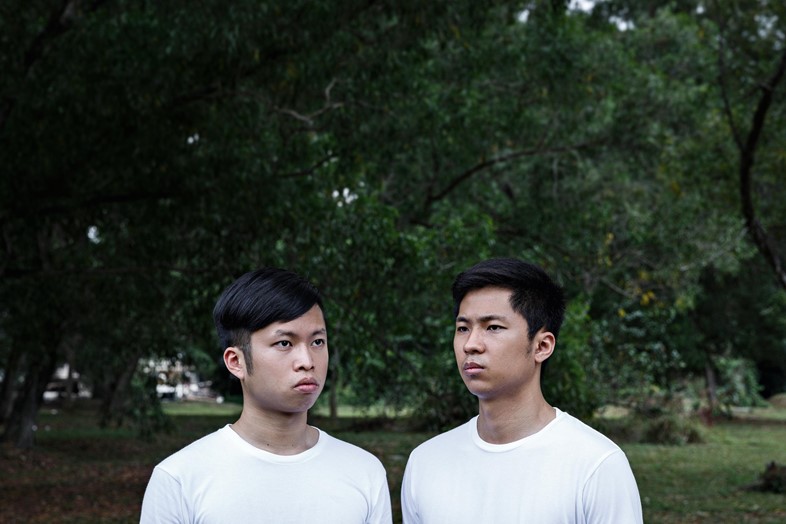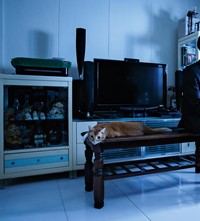Singaporean artist and photographer Broy Lim shares his experience of being a gay man in his home country, and what he’s doing to change things
- TextMiss Rosen
In recent years, a global trend has taken hold as countries with statutes against gay sex have begun repealing their oppressive laws. As of September, the number of nations with anti-homosexuality laws dropped to 73, after India overturned Section 377A, adopted from the British Penal Code 158 years ago.
Inspired by this action, members of Singapore’s LBGTQ+ community put pressure on the government to repeal that same penal code. In response, Attorney-General Lucien Wong to release a statement on October 2 confirming the government’s continued prosecution of same-sex sexual activity, which carries a two-year prison sentence.
“There are no anti-discrimination laws in Singapore to protect people in the LGBTQ community,” artist and photographer Broy Lim tells Another Man. As a result, many people choose to lead a closeted life inside an extremely conservative, heteronormative society. Lim followed this path, maintaining two lives, until the opportunity to speak his truth revealed itself.
In and now they know, winner of the Steidl Book Award Asia, Lim gives us a look into his private life through a series of intimate photographs and handwritten verse. Here, he shares his discovery the power that comes from publicly declaring himself to the world.
“While I was on student exchange at the Maryland Institute College of Art, Baltimore, I met artists from various parts of the world. One night I showed them a project featuring my partner, Alvin. My friends asked me, ‘Who is he?’
“‘My boyfriend’, I mustered all the courage in me to utter these two words that I have never told anyone before, despite being in a relationship with Alvin for five or six years. My new friends were nothing but supportive and with that newfound bravery, I worked on my next project: a single staged photograph titled Till the day they know.
“I felt more comfortable with the idea of revealing my truth through photography so I decided to work on and now they know. In Asian families, we rarely talk about our feelings, unlike our Western counterparts. We avoid confrontation and the ‘coming out’ conversations are rare. I knew my family was speculating on my relationship with Alvin and with all my works dealing with homosexual themes. and now they know is my way of putting the speculation to rest.
“The main person I wanted to see this work was my father. I always felt uncomfortable talking to him about such matters for fear of how he would see me. To some extent, my father is a representation of the conservative Asian person. It is with him in mind that my work is quieter, softer, more subtle. Art cannot be created in isolation and perhaps the love for my father has translated to the love for the audience.”

“My father, after seeing the work, didn’t react much but through my work process, he was really supportive – helping me to transport prints around, sponsoring me financially to make the work. After the opening night of the show, when I returned home, he asked me, in Mandarin, if I’d had dinner. To me, that question was his way of showing approval towards my project, my life, and my partner.
“I am still living with my family in Singapore. My partner and I are working within the system to craft a life for ourselves despite the limitations. While I would consider myself quite lucky, I cannot say the same is true for many of my fellow gay men in Singapore. Stories of abandonment, abuse, discrimination are not uncommon and many of these cases stems from a misunderstanding or a misinformed view of the LGBTQ+ community. Having said that, I would describe the LGBTQ+ community in Singapore as highly resilient. We have lived in the country long enough to negotiate these uncomfortable circumstances.
“After making this book and exhibiting work, I became aware that my identity is now public. When I first gave my artist talk about this project, I could remember how I trembled in fear but the audience was receptive and encouraging. Talking about it made me stronger and more vocal about standing up for my rights, beliefs and values. It showed me the next step – now that I am out, I can contribute to the cause openly.”
and now they know by Broy Lim, published by Steidl is out now















